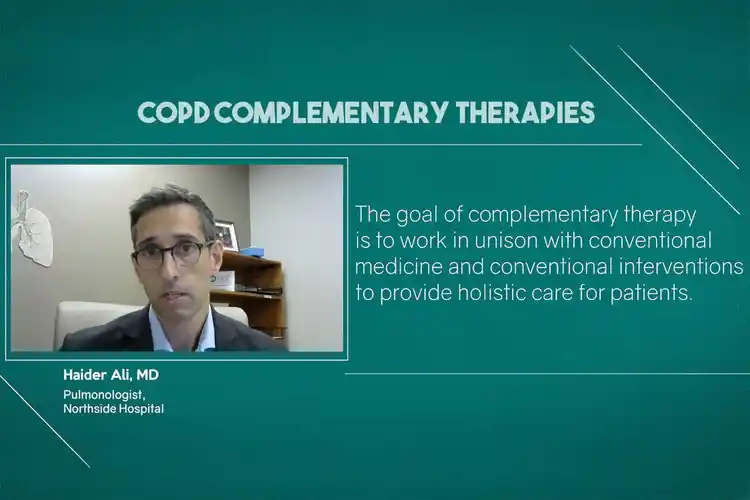Complementary Therapies for COPD

Hide Video Transcript
Video Transcript
[MUSIC PAYING]
A lot of complementary therapies have been studied, things like yoga therapy. Yoga breathing and diaphragmatic breathing, can really help people with that sensation of breathlessness, and can also help with their exercise tolerance as well.
There's been a lot of work looking at different types of natural supplements such as vitamin D, and acetylcysteine, and other sort of dietary supplements such as ginger, turmeric. These things -- they have been shown that they do have some very useful properties in reducing airway inflammation.
Eucalyptus oils and other essential oils can be useful as well. Again, there's some evidence that they may alter the immune cell profile in the airways. In that way, they may help your airways and your immune system fights some viral infections.
When someone's considering looking into complementary therapies or starting a complementary therapy, I think it's very important just to inform your doctor that you're thinking of doing this. Although a lot of these substances are natural substances, they still potentially could interact with some of your medicines and treatments. But people may find in a case-by-case basis that they can really help you.
HAIDER ALI
The goal of complementary therapy is really is, to work in unison with conventional medicine and conventional interventions to really provide a holistic care for the patient. So a lot of patients may find that there is still gaps in their symptoms that are not met by conventional medicine. And they can sometimes get these needs met using more sort of non-mainstream methods. A lot of complementary therapies have been studied, things like yoga therapy. Yoga breathing and diaphragmatic breathing, can really help people with that sensation of breathlessness, and can also help with their exercise tolerance as well.
There's been a lot of work looking at different types of natural supplements such as vitamin D, and acetylcysteine, and other sort of dietary supplements such as ginger, turmeric. These things -- they have been shown that they do have some very useful properties in reducing airway inflammation.
Eucalyptus oils and other essential oils can be useful as well. Again, there's some evidence that they may alter the immune cell profile in the airways. In that way, they may help your airways and your immune system fights some viral infections.
When someone's considering looking into complementary therapies or starting a complementary therapy, I think it's very important just to inform your doctor that you're thinking of doing this. Although a lot of these substances are natural substances, they still potentially could interact with some of your medicines and treatments. But people may find in a case-by-case basis that they can really help you.